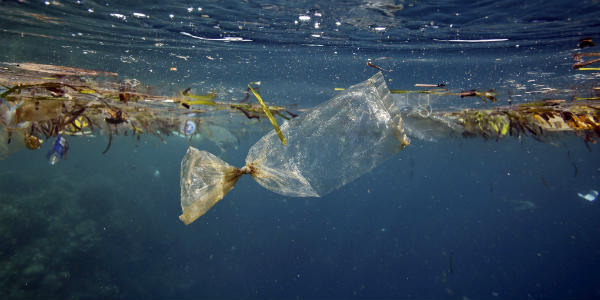The amount of plastic stuck in the bottom of the ocean has been growing at an alarming rate. And much to the chagrin of environmentalists and scientists who despite raising an alarm about the growing concern, hardly seem to find any signs of change. Despite massive campaigns of awareness being raised every now and again by a seamless blend of information portals and warnings and red flags raised by scientists and researchers regarding the great man-made travesty- nothing seems to have improved thus far.
And now, there is reason to believe there is more concern about plastic dumping in oceans than before. Where reports stand, a latest discovery by Arctic researchers has once again highlighted the plight of oceans marred by plastic dumping.

Apparently, it’s been discovered that there’s tons and tons of plastic that’s stuck freely in the Arctic sea ice. Thanks to this worrying discovery, there is reason to believe that we may have permanently contaminated the planet. There’s never been a greater threat to the oceans’ life than now. According to researchers at the Alfred Wegener Institute, Helmoltz Centre for Polar and Marine Research had collected core samples from the Arctic sea.
It was found that there were about 12,000 pieces microplastic particles per litre of sea ice. In case you are wondering just how harmful this may be, here’s what’s been found. The amount of microplastic particles per litre of sea ice is three times higher than levels found in previous studies. A combination of gross dumping materials in the arctic sea includes nylon, paints, polyester and even cellulose acetate.

But it isn’t that plastic dumped at a single or multiple instance leads to such mighty load of dump. It is the process of ocean currents that makes the plastic dumped into water bodies reach the Arctic sea. But the reason to worry doesn’t end there. It is also estimated that around 8 million metric tons of plastic ends up in our oceans and every year. What makes the scenario even more worrying is that- this is in addition to the 150 million metric tons that is already there in the oceans.
This leads us to question what the world is doing about recycling. Approximately, only 9 per cent of the world’s plastic undergoes the process of recycling. The worst offenders in the horrendous list of plastic items include straws, material used in food-packaging and plastic bags. Can the world now register the grave undoing for which no one else can be blamed or will things only get better upon hitting the time of no return?


